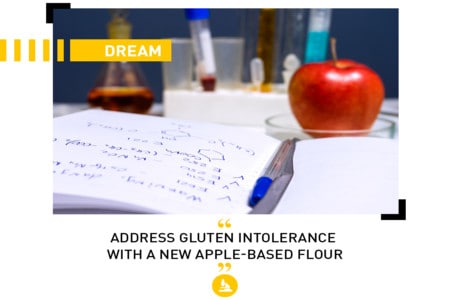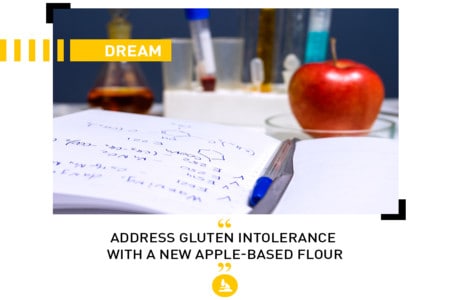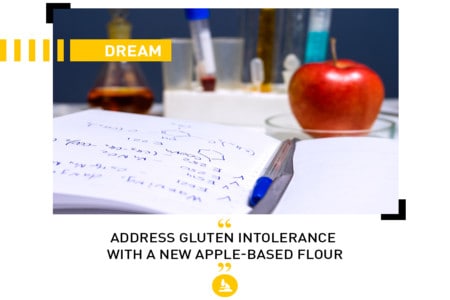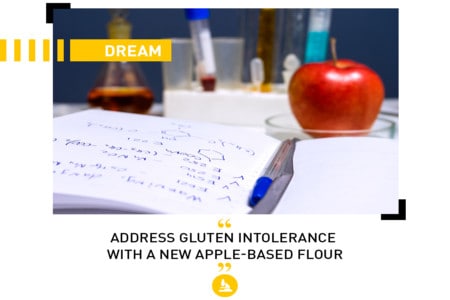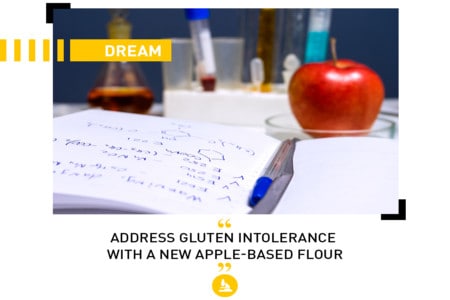
Overview
Agriculture is an important sector in the Alps, however, too often by-products do not find adequate valorisation. AlpBioEco worked to increase the sustainability of the apple, walnut and herbs value chains while identifying opportunities and paths for innovation. From the initial 440 new product and service ideas, the 26 most promising ones were converted into eco-innovative business models, of which 7 were pilot-tested. These pilot projects and the lessons learnt by testing them unlock new competitive advantages for small and medium-sized enterprises in the Alpine food value chain.
Factsheet
- 2014 – 2020
- Innovative
- Improve the framework conditions for innovation in the Alpine space
-
- Group 1: To develop an effective research and innovation ecosystem
- Group 2: To increase the economic potential of strategic sectors
- Group 6: To preserve and valorise natural resources, including water and cultural resources
- 04/2018
- 04/2021
- 2.141.960 EUR
- 1.820.666 EUR
Outcomes
-
Analysis of bio-based value chains and replicable roadmap
ToolThis compact report gives an initial overview over the examined three value chains of apples, walnuts and herbs/hay and their bioeconomic potentials. In addition, also a replicable roadmap is presented to make an own value chain analysis easier.This compact report gives an initial overview over the examined three value chains of apples, walnuts and herbs/hay in the first work package of AlpBioEco and builds up the base for further work packages. The work package T1 has been developed under the leadership of the Bavarian AlpBioEco project partner, KErn, Competence Center for Nutrition. Although the investigated value chains have its specific peculiarities, a replicable roadmap for the analysis of bio-based value chains could be developed based on the learnings in the project. The roadmap shall be a standardised guide to analyse value chains with bioeconomic aspects and potentials in regions like the Alpine Space. -
Eco-Innovative Business Models
ToolSeveral reports present 6+1 new eco-innovatice business model blueprints which aim to implement new products and services in the value chains of apples, walnuts, and herbs in the market. In addition, good and bad practices of existing eco-innovative business models etc.Work package T2 aimed at the development of eco-innovative business models for the identified high-potential value chains in work package T1. New eco-innovative business models were designed in cross-industry Open Innovation workshops involving SMEs, cluster representatives, academia, and societal actors to accelerate the collective learning and value creation. The output entails 6+1 detailed blueprints of eco-innovative business models (two for each value chain + 1 overarching business model) ready to be implemented and validated in work package T3. The work package T2 has been developed under the leadership of the Austrian AlpBioEco project partner, the Management Center Innsbruck, the Entrepreneurial School®. -
Best Practices of Eco-Innovative Business Models
ToolSeven eco-innovative business models developed in the AlpBioEco project and best practices are presented in this report, showcasing how bioeconomy can look in practice.The objective of work package T3 is to implement pilot testing of the eco-innovative business models developed within the previous work package. Under the leadership of the AlpBioEco project partner, the Chamber of Commerce and Industry of Slovenia, discussions with different stakeholders took place in different Alpine regions in order to discuss and further develop the most appropriate eco-innovative business models for selected value chains (apples, herbs and walnuts) - called "Focus Group Workshops". Moreover, business visits were planned in order to practically test the business models within agricultural or food small and medium-sized enterprises producing or processing renewable resources. All results of the testing phase are presented in an Best Practice Brochure. The Best Practice Brochure explains not only how products like the apple flour were developed and how they can possibly enhance the sustainability of the Alpine Space, but also reflects on business and marketing opportunities, and gives suggestions for improvements for each of the presented products. Moreover, it builds the basis for the last period of the AlpBioEco project, which focuses at the development of policy guidelines on how eco-innovation in the Alpine Space can be supported. Eventually, the aim is to be able to transfer the results of the project to other Alpine regions or projects. AlpBioEco thus will give important input on the way from a business-as-usual economy to a more environmentally friendly way of using our local resources. -
Bioeconomy Policy Transfer: Regional Policy Implementation Guidelines & Transnational Guideline
StrategyThe regional policy implementation guidelines present recommendations for the implementation of selected eco-innovative business models in several Alpine Space regions, promoting their implementation and the growth of bioeconomy.In August 2020, the fourth and last work package began under the leadership of Business Upper Austria. In this work package, the AlpBioEco team transfers the results from the previous work into policy learning. This was done through the establishment of 10 regional advisory boards that supported the AlpBioEco project partners in developing regional policy guidelines. These regional policy implementation guidelines are available for all AlpBioEco regions, aiming to promote the implementation of the selected business models in defined regions. Parallel to regional policy guiding the AlpBioEco team generates a strategic pathway, a transregional and transnational transfer guideline, how Alpine Regions could foster the implementation of innovative business models in other regions, countries or projects. -
AlpBioEco Final Report - Bioeconomy in the Alpine Space
ToolThe final report gives an overview about the AlpBioEco project, summarising all the project activities and results. The project focused on the valorisation of innovative bio-economical potentials along bio-based food & botanical extract value chains in the Alpine Space.The three value chains chosen as exemplary value chains - apples, walnuts, and herbs - and their bioeconomic potential in the Alpine Space are presented, as well as selected business models developed within the project. In the final report, a special focus is also put on regional examples and anecdotes of the project to show how diverse the AlpBioEco project was and how it actually contributes to regional value creation and to innovation in local businesses!

